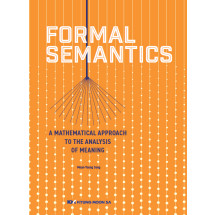Part I The Nature of Mind
Eliminative Materialism and the Propositional Attitudes
1 Why Folk Psychology Is a Theory
2 Why Folk Psychology Might (Really) Be False
3 Arguments against Elimination
4 The Conservative Nature of Functionalism
5 Beyond Folk Psychology
Functionalism, Qualia, and Intentionality
1 Four Problems concerning Qualia
A. The problem of inverted/gerrymandered qualia
B. The problem of absent qualia
C. The problem of distinguishing states with qualia from states without
D. The differentiation problem
2 The Problem of Nonstandard Realizations
A. Qualia in the Chinese nation
B. Intentionality in the Chinese room
3 Functionalism and Methodology
A. Conceptual conservatism
B. Top down versus bottom up
C. Reductionism
Reduction, Qualia, and the Direct Introspection of Brain States
1 Intertheoretic Reduction
2 Theoretical Change and Perceptual Change
3 Thomas Nagel's Arguments
The first argument
The second argument
The third argument
4 Jackson's Knowledge Argument
The first shortcoming
The second shortcoming
Knowing Qualia: A Reply to Jackson
1 The Persistent Equivocation
2 Other Invalid Instances
3 A Genuinely Nonequivocal Knowledge Argument
4 Converting a Third-Person Account into a First-Person Account
Some Reductive Strategies in Cognitive Neurobiology
1 Introduction
2 Laminar Cortex, Vertical Connections, and Topographic Maps
3 Sensorimotor Coordination
4 Coordinate Transformation: Its Physical Implementation
5 Cortex with More than Two Layers
6 Beyond State-Space Sandwiches
7 The Representational Power of State Spaces
8 Concluding Remarks
Folk Psychology and the Explanation of Human Behavior
1 Objections to the Theoretical View
2 An Alternative Form of Knowledge Representation
3 Addendum: Commentary on Dennett
Reductionism, Connectionism, and the Plasticity of Human Consciousness
1 The Plasticity Argument
2 The Cultural-Embedding Objection
3 Conclusion
Part II The Structure of Science
The Ontological Status of Observables: In Praise of the Superempirical Virtues
1 How van Fraassen's Problem Collapses into Hume's Problem
2 The Primacy of the Superempirical Virtues
3 Toward a More Realistic Realism
On the Nature of Theories: A Neurocomputational Perspective
1 The Classical View of Theories
2 Problems and Alternative Approaches
3 Elementary Brainlike Networks
4 Representation and Learning in Brainlike Networks
5 Some Functional Properties of Brainlike Networks
6 How Faithfully Do These Networks Depict the Brain?
7 Computational Neuroscience: The Naturalization of Epistemology
8 Concluding Remarks
On the Nature of Explanation: A PDP Approach
1 Introduction
2 Conceptual Organization in PDP Networks
3 Recognition and Understanding
4 Prototype Activation: A Unified Theory of Explanation
4.1 Property-cluster prototypes
4.2 Etiological prototypes
4.3 Practical prototypes
4.4 Superordinate prototypes
4.5 Social-interaction prototypes
4.6 Motivational prototypes
5 Inference to the Best Explanation
6 Comparison with Earlier Models
Learning and Conceptual Change
1 Introduction
2 Multiple Conceptual Competence
3 Conceptual Change versus Conceptual Redeployment
4 What Drives Conceptual Change?
5 Automated Science
Perceptual Plasticity and Theoretical Neutrality: A Reply to Jerry Fodor
1 The Etiology of Perceptual Belief
1.1 Does encapsulated processing buy us theory-neutral perceptions?
1.2 Is the impenetrability thesis correct?
1.3 Is the encapsulation thesis relevant?
2 The Semantics of Observation Predicates
2.1 Objections to the network approach: Fodor's reductio
2.2 Belief networks versus causal connections
2.3 Sensational plasticity versus conceptual plasticity
3 Conclusion
Conceptual Progress and Word-World Relations: In Search of the Essence of Natural Kinds
1 Natural Kinds and Scientific Progress: The Putnam-Kripke View
2 Natural Kinds as Law-Bound Kinds: Some Virtues, Consequences, and Difficulties
Moral Facts and Moral Knowledge
1 The Epistemology and Ontology of Morals
2 Moral Prototypes and Moral Development
3 Praxis, Theoria, and Progress
Paul M. Churchland is Professor Emeritus in the Department of Philosophy at the University of California, San Diego. His the author of The Engine of Reason, the Seat of the Soul (MIT Press), Neurophilosophy at Work, and several other books.












